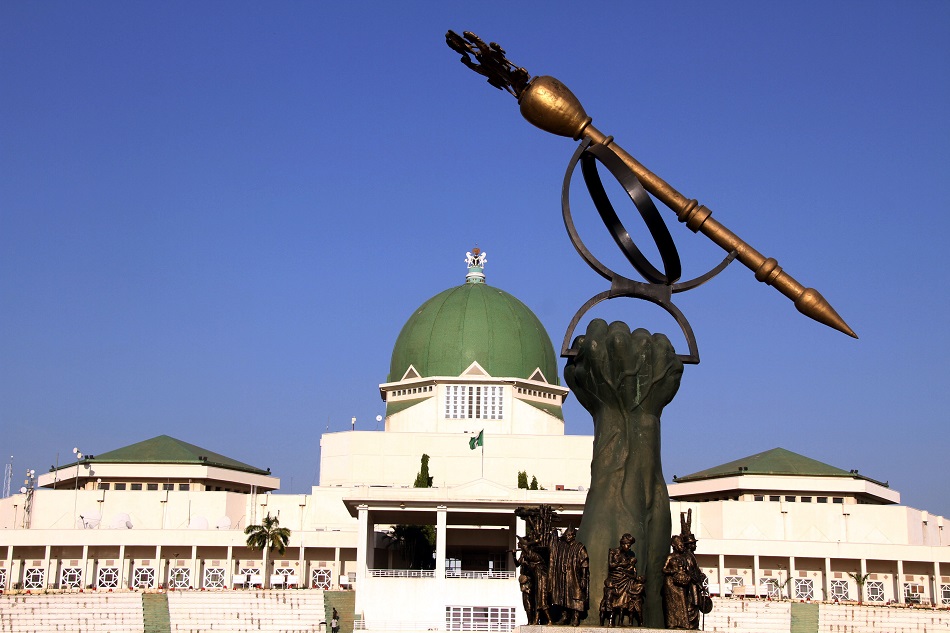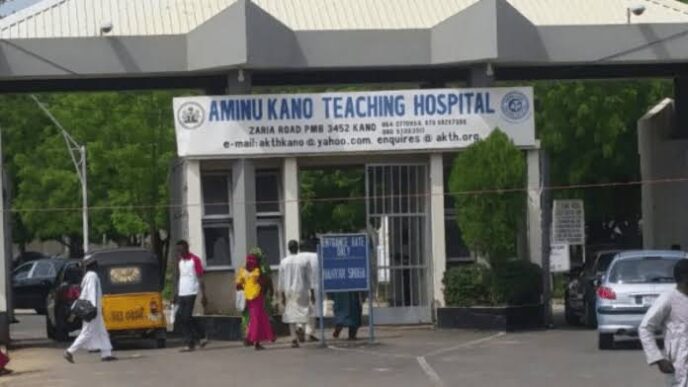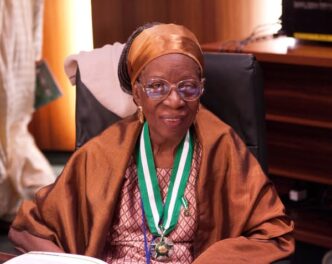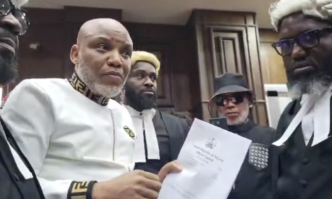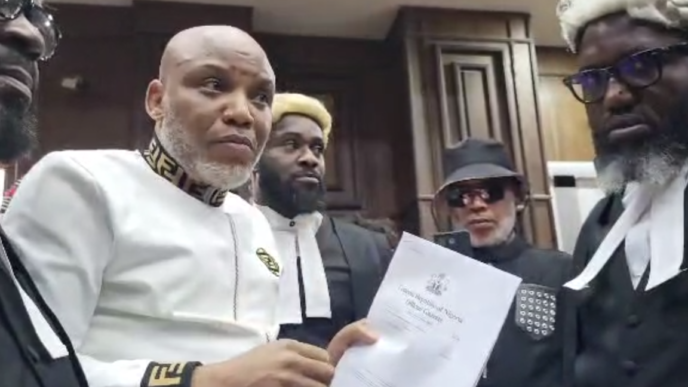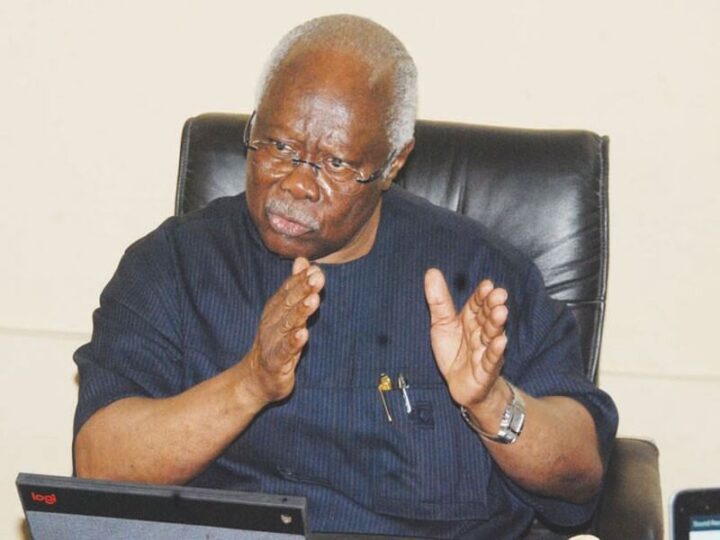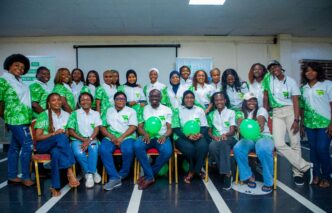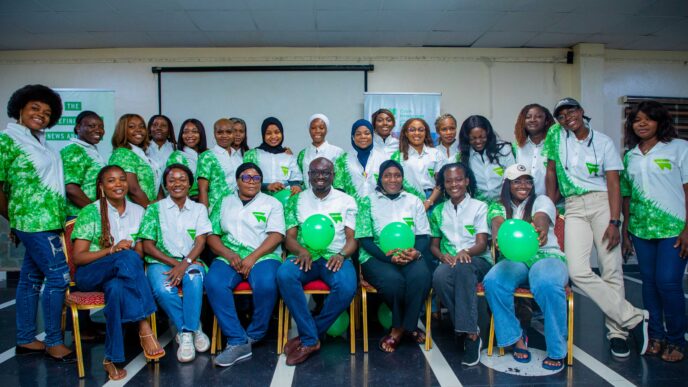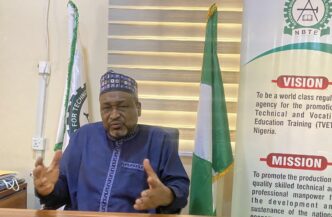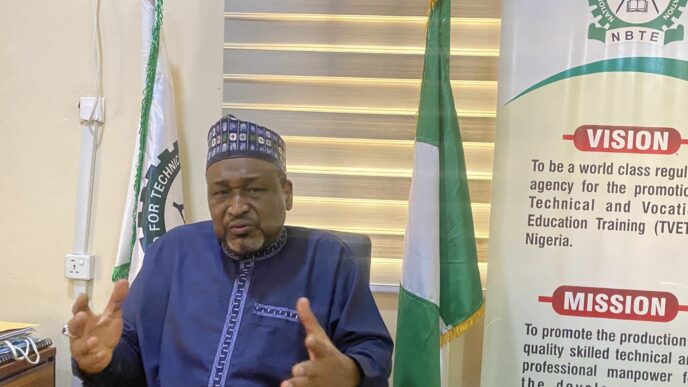On January 15, devastating news hit the national assembly. Adewunmi Onanuga, the deputy chief whip of the house of representatives, was announced dead, and her family and peers were plunged into mourning a mother, mentor, and trailblazer.
Onanuga, who represented Ikenne/Sagamu/Remo north federal constituency in Ogun state, died after a brief illness.
She was not just an ordinary lawmaker. She was the lone female voice among the principal officers of the house of representatives.
Less than a month after Onanuga’s passing, Tajudeen Abbas, speaker of the house of representatives, announced Ibrahim Isiaka, the lawmaker representing Ifo/Ewekoro federal constituency of Ogun, as her replacement.
Advertisement
“Following consultations with the All Progressives Congress (APC) caucus and other stakeholders from the south-west, the leadership of the house has received and accepted the recommendation of honourable Isiaka Ibrahim to serve as the deputy chief whip of the house of representatives,” Abbas said.
With the announcement, female representation in the leadership of the house of representatives was effectively erased.
The leadership of the green chamber therefore became an all-men affair — Julius Ihonvbere (majority leader), Ibrahim Halims (deputy majority leader), Usman Kumo (majority whip), Isiaka (deputy majority whip), Kingsley Chinda (minority leader), Ali Madaki (deputy minority leader), Ali Isa (minority whip), and George Ozodinobi (deputy minority whip).
Advertisement
The house overlooked two female lawmakers from the south-west — Kafilat Ogbara (Kosofe federal constituency, Lagos) and Tolulope Akande-Sadipe (Oluyole federal constituency, Oyo) — to appoint Isiaka.
In the senate, the situation is grimmer. There are only four female senators, and none was appointed to any of the eight leadership positions announced by Senate President Godswill Akpabio at the start of the 10th assembly.
This means that none of the 16 principal officer positions in the national assembly is occupied by women.
ANY HOPE FOR GENDER BILLS?
Advertisement
The marginalisation of women in the national assembly’s leadership casts a long shadow over the promised gender reforms.
In 2022, the national assembly rejected five gender bills which sought to promote more opportunities for women in governance and society to correct long-standing inequalities between men and women in the country.
One of the bills, titled ‘Expansion of the Scope of Citizenship by Registration,’ aimed to amend the constitution to allow foreign spouses of Nigerian women to acquire citizenship by registration. Currently, only foreign spouses of Nigerian men enjoy this privilege.
Another bill, ‘Special Seats for Women,’ proposed the creation of reserved seats for women in the national and state houses of assembly to boost female representation in governance.
Advertisement
A third bill, ‘Affirmative Action for Women in Political Party Administration,’ sought to amend the constitution to ensure that at least 35% of executive committee members in political parties, at all levels, are women. This is intended to gradually increase women’s representation in leadership roles, paving the way for gender parity.
A fourth bill sought to grant women the right to obtain indigeneship in their husband’s state after at least five years of marriage to promote equality and fairness in citizenship rights.
Advertisement
However, both chambers rejected the bills in the ninth assembly, sparking protests from women’s groups, who staged demonstrations at the national assembly. Following days of protests, the house of representatives rescinded its decision on three of the bills in a bid to persuade the demonstrators to leave the national assembly premises.
But the effort was futile as both chambers needed to vote in support of a constitutional amendment bill before it could move to the next stage. Furthermore, the process of reversing the vote on the gender bills was flawed, as it was conducted through a voice vote — an improper method for constitutional amendment bills.
Advertisement
REPEATED BUT HOLLOW PROMISES
Since the inauguration of the 10th assembly, Akpabio, Abbas, and Benjamin Kalu, the deputy speaker, have repeatedly promised to ensure some of the bills scale through in the ongoing constitutional amendment process.
Advertisement
In a statement issued to mark the 2024 International Women’s Day (IWD), Akpabio said he would continue to advocate for the improved welfare of Nigerian women.
“We are very conscious that failure to invest in women is akin to killing development and destroying a nation,” he said. The senate president added that the 2024 IWD theme — “Invest in Women, Accelerate Progress” — was in tandem with the senate’s position.
In July, about two months later, Akpabio assured that the national assembly would speedily consider and pass gender-based bills.
“As a responsible parliament, the 10th assembly under my leadership will also act in solidarity with the women caucus of the national and state assemblies in their rightful demand for improved representation in governance, symbolically and substantively,” he said.
Akpabio was not alone in issuing repeated assurances.
In February 2024, Abbas had asked the constitution amendment committee to revisit some of the gender bills rejected in the last assembly, notably the bill on the creation of extra-legislative seats for women.
“I urge you to revisit the issue of additional or reserved seats for women across legislative bodies, twinning in joint tickets and conferring citizenship on foreigners married to Nigerian women,” he said.
Reiterating his position in October of that year, Abbas said the constitution review committee would focus on reforms that promote gender equity.
Fast forward to March 3, 2025. The deputy speaker said having fewer women in national and state houses of assemblies is a barrier to the country’s progress.
Kalu, the chairman of the house committee on constitutional amendment, said more women are needed in politics to have a say in governance.
“When half of our population remains underrepresented in halls of power, our democracy is not just weakened — it is incomplete. Today, 15 states in Nigeria have zero elected women in their assemblies,” he said.
“At the national level, women make up a meagre 3.6% of the senate and 4.7% of the house of representatives. These figures are not just statistics; they are a stain on our collective conscience and a barrier to national progress.
“The Seat Reservation for Women Bill (HB1349), which I proudly sponsor, seeks to alter this narrative. By reserving seats for women in the national and state assemblies, we aim to dismantle systemic barriers and create a legislature that mirrors the diversity of our nation.”
‘NATIONAL ASSEMBLY NOT ACTING IN GOOD FAITH’
However, development experts and stakeholders believe that the rhetoric of the national assembly leaders rings hollow against the backdrop of an all-male leadership.
Chioma Agwuegbo, convener of the State of Emergency GBV Movement, told TheCable that despite the verbal commitments of the presiding officers, there is no genuine effort to ensure parity in the legislature and political parties.
“I don’t think that the national assembly as it is currently constituted is acting in good faith regarding very promises they have made to ensure there is gender equality within the national assembly, within political parties, within federal and state appointments,” she said.
“There isn’t any show of good faith. There isn’t any sign that they are even remotely interested in ensuring any form of parity. There is a stark disregard for the voices and opinions of women within the national assembly.
“With this kind of posture, you cannot tell Nigerians that you are interested in ensuring that there is any form of parity or representation.”
WOMEN IN NATIONAL ASSEMBLY
HOUSE OF REPS
| S/N | NAME | CONSTITUENCY | PARTY/STATE |
| 1 | Regina Akume | Gboko/Tarka federal constituency | APC, Benue |
| 2 | Maureen Gwacham | Oyi/Ayamelum federal constituency | APGA, Anambra |
| 3 | Marie Ebikake | Brass/Nembe federal constituency | PDP, Bayelsa |
| 4 | Zainab Gimba | Bama/Ngala/Kala Balge federal constituency | APC, Borno |
| 5 | Erhiatake Ibori-Suenu | Ethiope east/Ethiope west federal constituency | APC, Delta |
| 6 | Mariam Onuoha | Isiala Mbano/Okigwe/Onuimo federal constituency | APC, Imo |
| 7 | Kafilat Ogbara | Kosofe federal constituency | APC, Lagos |
| 8 | Boma Goodhead | Akuku Toru/Asari Toru federal constituency | PDP, Rivers |
| 9 | Khadija Bukar Abba-Ibrahim | Damaturu/Gujba/Gulani/Tarmuwa federal constituency | APC, Yobe |
| 10 | Fatima Talba | Nangere/Potiskum federal constituency | APC, Yobe |
| 11 | Tolulope Akande-Sadipe | Oluyole federal constituency | APC, Oyo |
| 12 | Chinwe Nnabuife | Orumba north/Orumba south federal constituency | YPP, Anambra |
| 13 | Blessing Onuh | Otukpo/Ohimini federal constituency | APC, Benue |
| 14 | Lilian Orogbu | Awka north/Awka south federal constituency | LP, Anambra |
| 15 | Blessing Amadi | Port Harcourt II federal constituency | PDP, Rivers |
SENATE
| S/N | NAME | CONSTITUENCY | PARTY |
| 1 | Ireti Kingibe | FCT | LP |
| 2 | Natasha Akpoti-Uduaghan | Kogi Central | PDP |
| 3 | Ipalibo Banigo | Rivers West | PDP |
| 4 | Idiat Adebule | Lagos West | APC |
Add a comment
